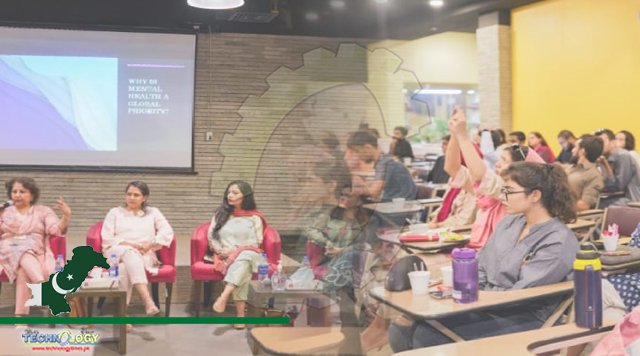Department of Social Sciences and Liberal Arts, School of Economics and Social Sciences (SESS) at Institute of Business Administration (IBA), Karachi organized a mental health symposium titled ‘Mental health.

The symposium comprised of brief talks on important topics relevant to mental health and associated factors. Guest speakers included Dr. Nargis Asad, Chair, Department of Psychiatry, Aga Khan University Hospital (AKUH); Dr. Shireen Najam, Consultant Psychiatrist, Department of Psychiatry, AKUH; Aneeta Pasha, Country Director, Interactive Research and Development (IRD) Pakistan; Samar Naqvi, Chief Executive Officer, Karachi Down Syndrome Program (KDSP); Ahmed Ali and Humera Qutb, Wellness Counsellors, Wellness Center, IBA. mental health symposium, The session commenced with a welcome address by Dr. Sahar Nadeem, Chairperson, Department of Social Sciences and Liberal Arts. She talked about the importance of mental health and how we define health. The first presentation was by Dr. Asad, she shed light on the importance of understanding psychosocial determinants of mental health. She stated that in Pakistan the availability of trained mental health professionals is far less than the demand as 24 million people in Pakistan require psychiatric care and the country only has 0.19 psychiatrists per 100,000 individuals.
Pasha spoke about the importance of mental health and the need for awareness of mental health related problems at the workplace. She said that most organizations and individuals were unaware of mental health issues in our part of the world and usually their first instinct is to terminate people with mental health problems as organizations consider people dispensable. She emphasized that a paradigm shift is needed as organizations need to invest in the mental wellbeing of their employees by investing in a mental wellbeing culture and by adopting a more humanistic value system. mental health symposium, Providing statistics on people with disabilities in Pakistan, Naqvi shared that 1 in 7 people have some form of disability and 80% of those reside in developing countries. She said that people with disabilities feel a lack of belonging. She highlighted ways through which the people with disabilities can be supported and be made to feel more included in society.
Source: This news is originally published by pakobserver